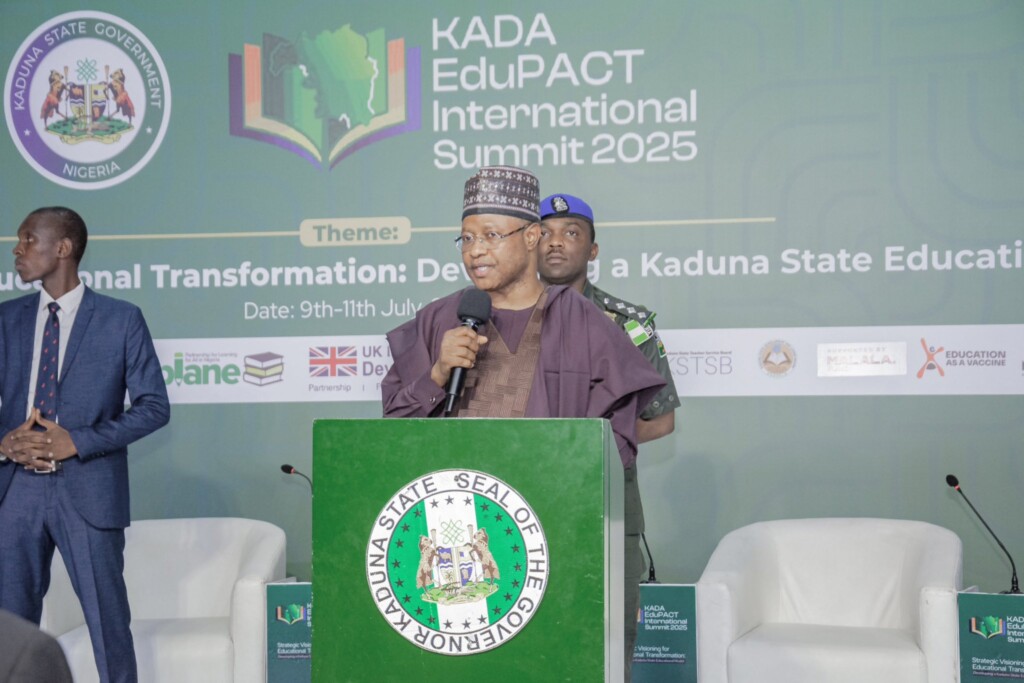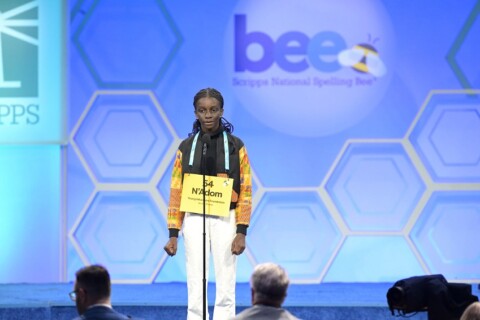The British Government, the United Nations (UN), and UNICEF have pledged their support for Kaduna State’s sweeping education reforms aimed at improving learning outcomes and ensuring equitable access for citizens.
The commitment was reaffirmed at the opening of the Kaduna State Education Summit, known as the EduPACT Summit, held at Murtala Muhammed Square in Kaduna.
Speaking at the summit, the UK Chargé d’Affaires and Deputy High Commissioner to Nigeria, Mrs. Gill Lever, underscored Britain’s enduring dedication to education reforms in Nigeria. She described the UK’s role as a principal co-sponsor of the EduPACT Summit as evidence of this commitment.
“The UK and Kaduna State have built a robust partnership over the years, and the Kaduna State Mutual Accountability Framework reflects the government’s dedication to delivering inclusive, quality education for all children,” Mrs. Lever stated.
She highlighted the UK’s collaboration with Kaduna through the PLANE programme, which focuses on strengthening foundational learning, improving teacher training, and promoting inclusive education. “Together, we’re working to bring out-of-school children back into classrooms. This summit is a valuable platform for exchanging ideas and deepening collaboration. The UK remains steadfast in supporting Kaduna’s vision for an education system that serves every child,” she emphasized.
Delivering the keynote address, United Nations Deputy Secretary-General Amina Mohammed praised the Kaduna State government for translating global commitments into tangible progress. She noted that the state’s efforts have helped lower barriers to education and expand access to quality learning opportunities.
“These initiatives are particularly crucial now, as education systems worldwide grapple with challenges posed by economic pressures, growing inequalities, and the escalating impacts of climate change,” Mohammed said.
Nigeria’s Minister of Education, Dr. Tunji Alausa, commended Kaduna State for promoting the international education agenda, aligning with the country’s broader goals to develop human capital for national growth. He described the summit as a significant platform for charting a clear and inclusive path toward educational transformation, not only for Kaduna State but as a model for other regions in Nigeria.
Dr. Alausa noted that Governor Uba Sani’s educational reforms align with President Bola Ahmed Tinubu’s Renewed Hope Agenda and the National Education Sector Renewal Initiative (NESRI). “We are committed to redesigning and rebuilding our education system to meet 21st-century demands,” he said.
He praised Governor Sani’s administration for specific strides, including a 40 percent reduction in tuition fees for state-owned tertiary institutions, substantial investment in Kaduna State University, and the ambitious $62 million initiative to boost basic education.
Reflecting on the summit theme, “Strategic Visioning for Educational Transformation; Developing a Kaduna State Education Model,” Dr. Alausa stated, “What we’re witnessing in Kaduna today is not merely progress but proof that genuine transformation is possible when leadership is intentional and driven by data.”
He added that EduPACT 2025 offers an avenue to merge global educational reform discussions—such as insights from the 2022 Transforming Education Summit and the recent Financing for Development Conference in Spain—with the realities on the ground in Kaduna. “We must envision an education model in Kaduna that is learner-centered, equipping students with critical thinking, problem-solving, and digital skills,” he said.
Dr. Alausa stressed the importance of leaving no child behind, emphasizing the need to support girls, children with disabilities, and those from underserved communities. He called for embracing digital tools, artificial intelligence, remote learning technologies, and data-driven school management systems. Additionally, he emphasized creating a system resilient enough to withstand crises like pandemics and climate-related disasters.
He further argued that education should not be viewed merely as an expense but as a strategic investment crucial for national stability, productivity, and peace. “A naira spent on quality education is a naira saved on conflict resolution, unemployment, and public health,” he remarked. He explained that the Federal Ministry of Education is advocating for a blended financing model that combines federal and state funds, private sector contributions, and support from development partners in a transparent, results-driven framework.
Declaring the summit open, Governor Uba Sani described the gathering as a pivotal moment in Kaduna State’s pursuit of a stronger, more inclusive, and future-oriented education system. “Today, we move away from fragmented efforts toward a unified, data-driven strategy that places our children and youth at the heart of our development agenda,” he said.
Governor Sani reiterated his administration’s commitment to education, describing it as not merely a sector to manage but a powerful tool for individual empowerment and societal progress. “A peaceful, prosperous, and secure society is anchored on the foundation of accessible, equitable, and high-quality education,” he noted.
He highlighted the state’s systematic approach to reforms, focusing on improving access, upgrading infrastructure, training teachers, and leveraging technology to deliver impactful learning experiences for every child in every community.
“As Governor, I am fully aware that global economic challenges have widened educational gaps, jeopardizing years of progress. In response, our administration views education as both a fundamental human right and a vital engine for sustainable development, economic recovery, and social resilience,” Sani added.
He emphasized that Kaduna State has prioritized investment in foundational learning, digital infrastructure, teacher development, and inclusive education policies, particularly targeting marginalized groups such as girls, children with disabilities, nomadic populations, and those living in conflict-affected areas.
The EduPACT Summit attracted numerous high-level stakeholders from government, development agencies, and the private sector. Among the dignitaries present were Dr. Aisha Garba, Executive Secretary of the Universal Basic Education Commission (UBEC); Vanessa Lee, Chief of Education at UNICEF Nigeria; and Ian Attfield, Senior Education Adviser at the British High Commission.





